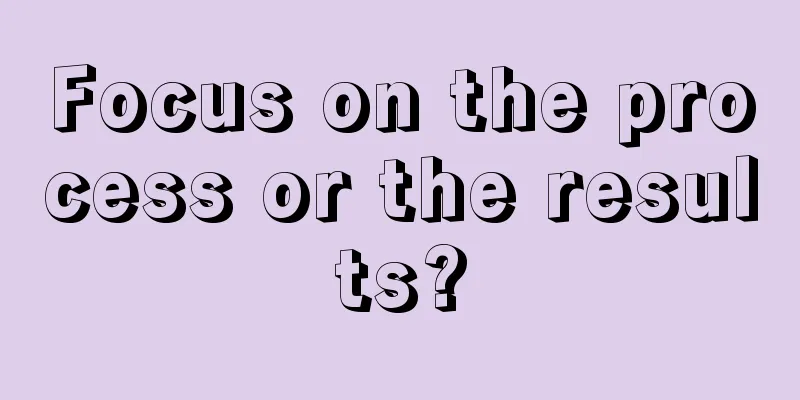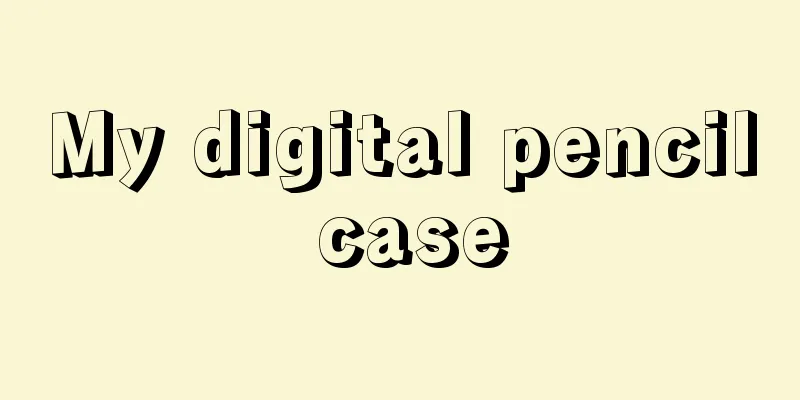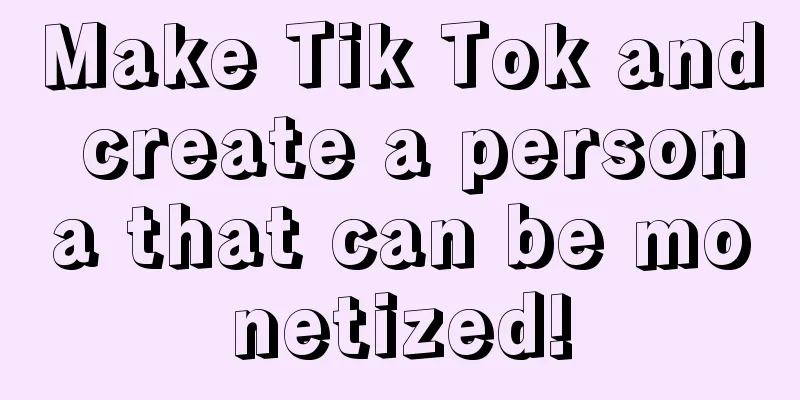Focus on the process or the results?

My friend told me about one thing: he has always wanted to make a breakthrough in the field of short videos. To this end, he invested a lot of energy, learned editing and shooting skills, bought professional equipment, and set up his home as a studio. In addition, he also set a goal of shooting several short videos every week. However, he faced many challenges in the pursuit of his goal. For example, he shot a lot of footage, but found that much of it was not useful during editing. Although the script was well written and filmed, it was found that there was room for improvement during editing; in the end, the number of views of the short video posted on the platform was very low, and the input-output ratio was not proportional. These setbacks made him feel frustrated and disappointed, and he felt that he was getting further and further away from his "overall goal". I believe you have also encountered similar situations. Should we focus on pursuing the goal or on the process? This question seems simple, but it often makes people think deeply. Sometimes, we may be too focused on the results and ignore the value of the process; sometimes, we may be too focused on the process and have a vague idea of the final goal. So, should we focus on the goal or the process? In other words, is there a balance between the goal and the process? I think it is necessary to re-examine the difference between the two and find their balance. 01What is a process? Most people would call a series of things, steps, operations, or changes over a period of time, activities that occur in a specific order, a process. For example, learning a new skill, from acquiring knowledge, understanding, memorizing, applying and consolidating a series of cognitive activities is a process embodiment. What is a target? Goals are specific, measurable things that are set to achieve a desired outcome or fulfill a specific desire; they are generally used to guide actions and decisions and provide assurance and focus for efforts. There's nothing wrong with that. However, it is possible to simplify it. Dexter Hicks, a psychology professor at Stanford University, believes that there are three stages to completing a task: learning goal, mastery goal, and performance goal. He once conducted an experiment to prove the following:
What does this incident illustrate? Without challenging conditions, performance goals can help people achieve good results, and most people can get high scores. However, when the situation becomes complicated, performance goals may fail. However, psychologists are not reconciled to this. They try to find out how people deal with difficulties under the two goals, so they change the experimental method. as follows:
Can you see anything? If you are dealing with simple things, holding performance goals can effectively improve performance. After all, the pursuit of performance goals is usually not about the things themselves, but about wanting to show yourself through "numbers". You will feel that if you achieve the goal, you will be recognized by those around you in your growth and team, and you will look talented and capable. There is nothing wrong with performance itself, and the pursuit of results can also be a very strong motivating factor. I have worked in sales for a period of time and have discovered this phenomenon: some people are very motivated with the help of "gesturing when they have nothing to do". Many studies have also shown that people with expressive personality traits are more focused on results, and their spirit of learning from each other and surpassing each other just makes them motivated. But the problem is that because they are too focused on achievement, the atmosphere of PK often makes them nervous and anxious. At the same time, people who are too focused on performance may fall into self-doubt when they encounter setbacks, because for them, performance results are related to personal achievement motivation. They will regard failure to achieve something as a denial. If they perform poorly, their self-confidence will be hit, and their self-esteem and sense of value will be frustrated. If the goal is too high and they have to do something, the possibility that they may give up is very high. I find that people who are “goal-savvy” can be divided into two types:
When I was leading different new media interns, I usually gave them a half-month "proficiency period" and set some KPIs, including getting familiar with the work processes of the relevant departments and assisting the editor in writing a few articles. I deliberately lowered the difficulty of these goals to a level that could be achieved with hard work, so as to observe their performance. Later, I found that those who were proficient in goals would blame themselves for making mistakes, thinking that they "should not make low-level mistakes" or "sorry for the trust of their leaders." Although they may also want to prove their abilities, their attitudes are completely different from those who are performance-oriented. They will see difficulties as a challenge and mistakes as feedback; while people with "performance goals" are just the opposite, they blame themselves for being overly stressed. In addition, it is worth noting that from a cognitive perspective, when a person focuses on progress, he will ignore some invalid information and find more essential problems. for example: Before I started working in self-media, some of my friends were used to paying attention to the number of views of an article, but I switched my goal to "growth" in the early stage. I found that I was more willing to pay attention to whether the content was good? Was it inspiring? Was there any incremental value? These happened to bring me different positive and negative feedback. Admittedly, there is not much difference in the achievement of the three types of goals. But in the face of different problems, pursuing proficiency in the early stage and then switching to performance may have a stronger foundation and stronger motivation. In addition, whether to use goal orientation or process orientation also depends on a more detailed understanding of the two. 02I personally think that goal orientation tends to be more tactical (more realistic), while process is more suitable for the strategic level (more virtual). Why? Goal orientation means that there are precedents, others have done it, and you only need to follow others' path step by step to achieve it; just like many TOB companies doing SaaS business, find their own vertical segment, and then, in the early stage, imitate the appearance of competitors and innovate. Process-oriented goals are often vague, lack precedents, or can only be explored and laid according to a process framework. Just like the large-scale predictive artificial intelligence model in China, we only know that foreign countries have done it and have a framework, so we work hard in that direction, but others may not be able to provide us with the details of the implementation process (i.e. "How"). However, there are two misunderstandings in pursuing goal orientation:
Goals are usually vague and diverse. When used to solve "vague" problems, you may use the wrong criteria because you always regard the distance between reality and the goal as a straight line. You always fantasize about the results you will get after achieving the goal, while ignoring the work of laying a solid foundation in all aspects. Like: If you want to lose 10 pounds in a month and think about the number every day, even if you just focus on practicing with equipment, without paying attention to how to practice, how much to practice, whether to control your diet and other issues, you will not be able to achieve the result in the end. Therefore, the significance of process orientation is that paying attention to the process can continuously enrich your knowledge and self-awareness system in an all-round way. When you have accumulated a deep level in all dimensions, the goal will naturally be achieved. Think about it, isn’t it? The key to process orientation may be whether I have misunderstood some concepts, whether I have learned new theories based on the overall goal, whether I can use a new thinking framework to solve the problem, or even whether I have accumulated some new connections to make me anti-fragile. Or, have my error correction and learning speed improved? Does my ability to obtain information from the outside world reflect the objective reality compared to the general direction I want? If not, what is the difference? If so, what are my big and small premises? This series of actions requires a long time and is actually laying the foundation. However, once a certain growth point is grasped, the growth will far exceed expectations. Sometimes, the money earned in one year may be the sum of the past few decades. However, due to lack of patience, many people are unable to persist, causing their cognitive framework to remain in a goal-oriented and linear world of growth. for example: Everyone says that lawyers and doctors are good professions, high-income professionals. However, you may not realize that most of them rely on time and physical labor to obtain linear income, because it is difficult for them to understand the business model of "linear growth" and "exponential growth". Some lawyers and doctors are relatively smart. He focuses on the change process and is good at using the Internet to promote himself, build a personal brand to obtain premium, and diversify the revenue structure. When he is older and no longer sees patients, he can still make money through consulting and academic exchanges. Therefore, focusing on process orientation may achieve results that exceed expectations and imagination. Here comes the problem: focusing on process orientation sounds good, but it is painful to implement. After all, if you are not interested in the results (money, honor), what is the point of pursuing the process? 03If both the process orientation and the result orientation of a thing can make you continue to be happy and improve your achievement index, you will naturally have the motivation to move forward. Therefore, the key is whether the thing is self-concordant with yourself. What kind of goals are consistent? Simply put, the goal must be based on one's true inner desires and interests, and must be a voluntary choice, not imposed by others or under some external pressure. In the Self-Determination Theory, psychologist Richard M. Ryan and other experts divide a person's motivation for doing things into four types: extrinsic motivation, introjected motivation, identification motivation, and comprehensive motivation. What do they mean? External motivation is affected by the environment. Just like in school, many students may rush to complete their homework before the deadline assigned by the teacher, just to get a good grade or avoid being deducted points, rather than being truly interested in the content of the homework or voluntarily investing time and energy to complete the homework. This motivation to complete homework mainly comes from external rewards or punishments, rather than internal interests or values. On the contrary, if there is no punishment mechanism to restrict, it is easy to give up. Internal motivation is self-requirement. It mainly comes from inner pressure and sense of responsibility, rather than real inner interest or desire; just like the intern mentioned above, because I did not set a high KPI in the early stage, he thought he could complete it, but he did not complete it. In order to maintain his image or avoid being blamed, he felt ashamed. Identify the values that are the source of motivation. This means that an individual recognizes the importance of a certain goal or behavior and generates intrinsic motivation and interest based on it. Integrated motivation means that the behavior and goal have been integrated with the self. For example, I want to work hard to improve my singing skills because I firmly believe that I can become a singer. If you understand this, you will also understand why big bosses in companies like to keep their eyes on the target. After all, the "process" recognition is very complicated and requires a series of deep consensus on values, recognition motivation, etc. This is difficult. Instead, they simply focus on the results and implement performance pressure to drive the company forward quickly. But then again, from the perspective of developing good ability to accomplish things, I strongly recommend starting with "focusing on the process". Why? Think about it, you are not a company, you don't need to study strategies every day, do various market launches, and operational strategies; you only need to think about the general direction of your career development and which small things can make you continue to add value and move towards exponential development. This is the difference between focusing on the process and the result motivation level. 04However, although the comprehensive motivation of integrating oneself with things is a happy thing, not everything can be done like this. After all, in most cases in the company, we are serving the goals of others. More often, we are faced with "having to do" or "wanting to do something but it's hard to do, or something we can't do but have to do" . Some people are even often influenced by others and do things for the sake of face. When the goals are inconsistent, how should we adjust? Here are three methods: 1. Stop and think about why you are doing itIn most cases, external factors are usually the main driving force. These factors may include company requirements and your own desire to achieve similar success after seeing others achieve similar success. However, in actual practice, both of these factors may lead to frustration, causing you to stop and reflect on the question "What's wrong and why is it so difficult?" If you can think from a different perspective, and regard these motivations as a kind of training opportunity, and move forward from a learning goal to a mastery goal and then to a performance goal, you may gain a deeper level of recognition in your heart, which will not only reduce stress but also bring intangible motivation. 2. Think about where I amMany people overestimate their own capabilities because they oversimplify the complexity of things. They mistakenly confuse "knowing" with "unity of knowing and doing", and only hear about it superficially, but never really put it into practice. They mistakenly believe that they can easily complete tasks such as shooting videos, writing articles or making project reports by following a few simple steps. Therefore, when they cannot achieve the small goals they set in advance, they will easily give up or change their goals. In fact, from the perspective of the company, it is more reasonable for the boss to focus on the results and the management to focus on the process, after all, this can drive the progress of the entire organization. But at the individual level, the two should switch positions. You should focus on a task at a certain stage, put a lot of energy into the process, and have an in-depth understanding of the processes and methods required to achieve the goal. This will make the path to achieving the goal clearer and allow you to remain persistent and patient when facing difficulties and challenges. If a difficult task cannot be completed, then changing to an equally difficult task is likely to be impossible to complete. This statement is not an absolute truth, but it can explain why some people cannot stick to one thing. 3. Try to ask yourself from the perspective of givingHumans are social animals. Even if you have self-consistency at a certain stage and realize that the process is important, your vanity will be nurtured by the influence of various external temptations, and you will unknowingly return to the original state of being driven by strong goals, deviating from the "process-oriented" focus. There are also some people who, even if they realize that they are deviating, will still go in the opposite direction for fear of losing, which causes them to struggle in the result-oriented approach. I am a typical case: When I first started as a content creator, I would feel sad when I saw other people’s content had a high number of readers. I said I wasn’t jealous, but I couldn’t help but feel uncomfortable inside. Later, I changed the title and adjusted the structure, but the people who came because of various strategies were lost after a period of time. Whenever I feel anxious, I stop. Think about why you want to do this? Is it to cater to the market or to create valuable content? Qingxin, every time you reflect, you can pull yourself back to the main track you want to take, find a route that can be commercialized and compound interest, and move forward slowly. In the market, some people can achieve very high achievements and feel very happy, while others are not so happy. This may be because the former have gone through the process of hard work, while the latter may bypass the process of hard work through money or other means, ignoring the meaning of the process. Like: The difference between investing in a company and building a company yourself is the same. Although the final result is to create value (make money), the process of the two is completely different. Without the process of accumulation over time, people always feel that something is missing. As the saying goes, the meaning of having a goal is not to simply "achieve" the goal, but to give us a clear direction to strive for. ConclusionThe goal is indeed important, but the process is even more critical. When setting goals, think in terms of effort and whether you are willing to put in the necessary effort and action to achieve that goal. This approach is also a key factor in achieving lasting happiness. Author: Wang Zhiyuan Source: WeChat public account "Wang Zhiyuan (ID: 878436)" |
>>: Who hasn’t been a “tourism special forces soldier”?
Recommend
Top anchors turn to short dramas to create the myth of selling goods again?
Hansu achieved sales growth through short drama ma...
What are the product selection techniques for Shopee Taiwan? How to select products well?
There are actually quite a lot of merchants openin...
The more time you grab, the more money you make.
Attention is consumption power, so how to seize us...
Which bank should I use for Amazon dual currency credit card? How to apply?
To register with Amazon, you need to prepare a dua...
Shopee Philippines launches new feature, Seller Services Platform
Shopee Philippines platform announced that it has ...
What is a new category? Exploring the path to breakthrough in marketing planning
The best choice for brands to break through, creat...
Douyin and Meituan are once again involved in local life live streaming
Driven by the wave of digitalization, local life s...
One note sold over 100,000 products. How did they “make money lying down” on Xiaohongshu?
On Xiaohongshu, a social platform full of potentia...
How to easily place an order on Shopee Taiwan? Introduction to popular categories on Shopee Taiwan
Many domestic merchants have opened stores on Shop...
The anchor's monthly sales are millions, and the 10 billion card industry has become popular in the live broadcast room
This article seizes on the current booming card ma...
Beverage brand Liquid Death relies on "funeral style" to capture hardcore fans?
Exploring new boundaries of brand marketing, Liqui...
Is it illegal to transfer an Amazon store? What should I do if I want to transfer a store?
Not every merchant on Amazon has a booming busines...
With the song "Dig, dig, dig", the beautiful kindergarten teacher attracted 3 million fans and was snatched up by many institutions...
A beautiful kindergarten teacher named "Music...
How long does it take to apply for Amazon's Transparency Program? What is the application tutorial?
Nowadays, more and more merchants are opening stor...
"Control" Baoma, why does this brand continue to dominate the Douyin charts
In the fiercely competitive market of maternal and...









